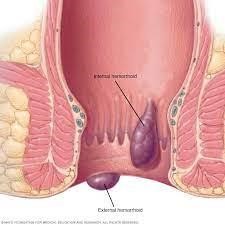A client expresses an interest in reducing intake of saturated fats and plans to stop eating hamburgers at lunch. Which menu item should the nurse suggest as an alternative source of protein?
Baked potato with low fat butter.
Roasted turkey sandwich.
Salad greens with tomatoes.
One slice of cheese pizza.
The Correct Answer is B
Choice A
Potatoes are incorrect. Potatoes are high in carbohydrates and can cause a rapid increase in blood sugar levels, so they are not the best choice for someone with diabetes trying to avoid refined sugars and carbs.
Choice B
Avocado is correct. Avocado is a good choice for someone with Type 2 diabetes who wants to avoid refined sugars and carbohydrates. Avocado is a healthy source of monounsaturated fats, fibre, and various vitamins and minerals. It has a low glycaemic index and doesn't significantly raise blood sugar levels, making it a suitable option for people with diabetes.
Choice C
Grapes are incorrect. Grapes are a fruit with natural sugars, and although they contain fibre, they can still cause spikes in blood sugar levels.
Choice D
Pretzels are incorrect. Pretzels are usually made from refined flour and are high in simple carbohydrates, causing rapid spikes in blood sugar levels. They are not a good choice for someone with diabetes aiming to avoid refined sugars and carbs.
Nursing Test Bank
Naxlex Comprehensive Predictor Exams
Related Questions
Correct Answer is B
Explanation
Choice A
Explain the benefits of a high fibre diet is not correct response. While a high fibre diet can indeed be beneficial for individuals with haemorrhoids by promoting regular bowel movements and reducing strain during defecation, the immediate concern here is addressing the client's understanding about avoiding nuts and seeds. This information could be provided as a follow-up after confirming the client's understanding in response to option B.
Choice B
Confirm that these foods should be avoided is the correct response. In this situation, the nurse's first response should be to confirm the client's understanding and provide accurate information about the need to avoid certain foods. Nuts and seeds can be challenging to digest and may lead to irritation and inflammation in individuals with haemorrhoids. Confirming the client's understanding and providing guidance aligns with the nurse's role in patient education and care.
Choice C
Encourage soft foods such as yogurt is not the correct response. Encouraging soft foods like yogurt is a reasonable suggestion for someone with haemorrhoids, as soft foods are generally easier to digest and less likely to cause irritation. However, the client's statement was specifically about avoiding nuts and seeds. While this choice might be relevant, it doesn't directly address the client's statement.
Choice D
Suggest that the client also avoid fruit skins is not the correct response. This option is not directly related to the client's concern about nuts and seeds. Fruit skins generally contain dietary fibre, which can be beneficial for maintaining regular bowel movements. While some individuals might find that certain fruits with tough skins could exacerbate their haemorrhoid symptoms, this advice might be better suited for a separate discussion about dietary choices rather than as a direct response to the client's statement.

Correct Answer is C
Explanation
Choice A
Opened package of hot dogs is not correct. Hot dogs are processed and often contain preservatives that help extend their shelf life. However, it's still important to follow proper storage guidelines to ensure their safety.
Choice B
Packaged of uncooked lamb chops is not correct. Uncooked meats are generally safe if stored properly. The main concern arises when cooking and handling them, as raw meats can potentially cross-contaminate other foods if proper sanitation measures are not followed.
Choice C
Opened package of deli sliced meat is correct. Among the options provided, an opened package of deli sliced meats (option C) is most likely to pose a threat of food poisoning after being stored in a refrigerator at 40°F (4.4°C) or below for more than two days.
Deli sliced meats are considered a high-risk food for bacterial growth and foodborne illnesses. When meats are sliced and exposed to air, they have a larger surface area, making them more susceptible to bacterial contamination. While the refrigerator temperature of 40°F (4.4°C) helps slow down bacterial growth, it doesn't completely prevent it, especially if the food has been stored for an extended period of time.
Choice D
Ground-up hamburger raw meat is not correct. Similar to uncooked lamb chops, raw ground meat is generally safe when stored properly and handled with care. However, ground meats do have a larger surface area that can allow bacteria to grow more easily, which is why safe cooking practices are important.
Whether you are a student looking to ace your exams or a practicing nurse seeking to enhance your expertise , our nursing education contents will empower you with the confidence and competence to make a difference in the lives of patients and become a respected leader in the healthcare field.
Visit Naxlex, invest in your future and unlock endless possibilities with our unparalleled nursing education contents today
Report Wrong Answer on the Current Question
Do you disagree with the answer? If yes, what is your expected answer? Explain.
Kindly be descriptive with the issue you are facing.
